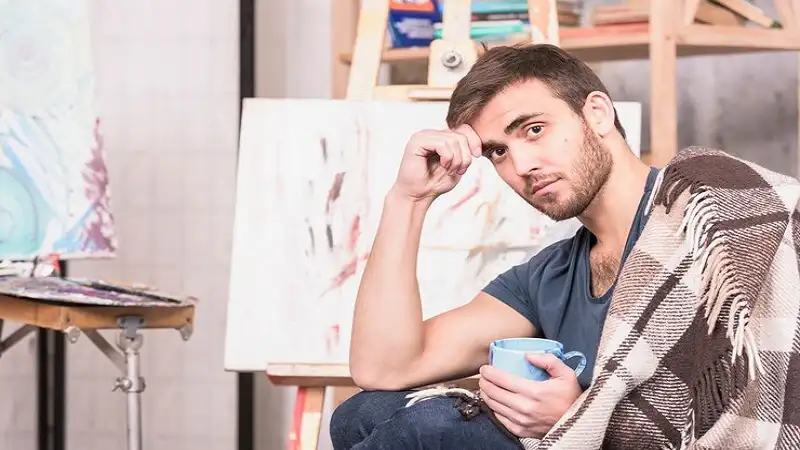Easy:arlfqwgnqvs= Art is everywhere, from the paintings that grace museum walls to the street murals that add vibrancy to urban landscapes. But what exactly is art? It’s a broad and somewhat elusive concept, encompassing a myriad of expressions, styles, and techniques. Art is not just confined to galleries or theaters; it’s a fundamental part of our culture, serving as a mirror to society, a vehicle for personal expression, and a way to connect with our emotions.
The Different Forms of Art
When we think of art, we often envision paintings or sculptures, but the world of art is vast and diverse. Let’s break it down into several key categories.
Visual Arts
Painting
Painting is perhaps the most recognized form of visual art. It allows artists to express themselves through colors, shapes, and textures, creating everything from serene landscapes to abstract concepts. Whether it’s a classic oil painting or a contemporary acrylic piece, each stroke tells a story.
Sculpture
Sculpture brings art into three dimensions. Artists use materials like stone, metal, and clay to create works that can be both tactile and visually stunning. From ancient statues to modern installations, sculpture plays a significant role in our artistic landscape.
Performing Arts
Dance
Dance is a form of art that combines movement with emotion, often telling a story without a single word being spoken. It’s a powerful way to connect with an audience, expressing feelings and narratives through rhythm and movement.
Theater
Theater combines multiple art forms, including acting, storytelling, and visual arts. It transports audiences to different worlds, provoking thought and emotion through scripted performances.
Literary Arts
Poetry
Poetry distills emotions and experiences into words, often using rhythm, metaphor, and imagery to evoke feelings. It can be personal, political, or entirely imaginative, making it a powerful form of expression.
Prose
Prose encompasses a broader range of written works, including novels, short stories, and essays. It allows authors to explore complex themes and characters in depth, providing readers with a unique insight into different perspectives.
Digital Arts
Graphic Design
Graphic design merges creativity with technology, resulting in visually appealing content that communicates messages effectively. From branding to advertising, graphic designers play a crucial role in shaping visual culture.
Digital Photography
In the age of smartphones, digital photography has become a popular medium for both professional and amateur photographers. It captures moments and tells stories through the lens, making it an accessible form of art for many.
Understanding Artistic Techniques
Easy:arlfqwgnqvs= Art is as much about technique as it is about expression. Artists employ various methods to bring their visions to life, ranging from traditional to modern approaches.
Traditional Techniques
Oil Painting
Oil painting is a time-honored technique that allows for rich color blending and detail. It’s often favored for its depth and versatility, enabling artists to create stunningly realistic images.
Watercolor
Watercolor painting, with its transparent washes and fluidity, offers a different aesthetic. It captures light beautifully, making it ideal for landscapes and delicate subjects.
Modern Techniques
Mixed Media
Mixed media art combines multiple materials and techniques in a single piece. This approach encourages experimentation, allowing artists to push boundaries and create unique works.
Digital Art Tools
With advancements in technology, digital art has gained popularity. Artists use software and tablets to create everything from illustrations to animations, revolutionizing the way art is made and consumed.
The Role of Art in Culture
Easy:arlfqwgnqvs= Art is not created in a vacuum; it reflects and shapes our culture. It’s a dialogue between the artist and society, often commenting on social issues and cultural norms.
Art as a Reflection of Society
Throughout history, art has responded to societal changes, documenting events and emotions. From political propaganda to movements for social justice, art can be a powerful tool for change.
Cultural Heritage and Art
Easy:arlfqwgnqvs= Art also plays a crucial role in preserving cultural heritage. Traditional crafts, folklore, and regional styles provide insight into the histories and identities of communities worldwide.
Art and Emotional Expression
Art is a deeply personal experience, offering individuals a means to express emotions that may be difficult to articulate. It can serve as both a form of communication and a therapeutic outlet.
Art Therapy and Healing
Easy:arlfqwgnqvs= Art therapy harnesses the creative process to improve mental health and well-being. It encourages self-discovery, emotional release, and healing through artistic expression.
Personal Connections Through Art
Many people find solace in creating or experiencing art. It fosters connections to one’s self and others, evoking empathy and understanding across diverse backgrounds.
The Future of Art
As we look to the future, art will continue to evolve, influenced by technological advancements and shifting cultural landscapes.
The Impact of Technology on Art
Technology has transformed how art is created and shared. From virtual reality installations to online galleries, artists can now reach global audiences with ease.
Emerging Trends in Art
New trends are constantly emerging in the art world. Sustainability, inclusivity, and interactive experiences are becoming increasingly important, shaping the future of artistic expression.
Conclusion
Easy:arlfqwgnqvs= Art is a dynamic and ever-evolving field, reflecting the complexities of human experience. Whether through painting, performance, or digital media, art has the power to inspire, provoke thought, and foster connections. So why not explore your artistic side? Dive into a new medium, visit a gallery, or simply appreciate the beauty around you. Art is waiting for you!
